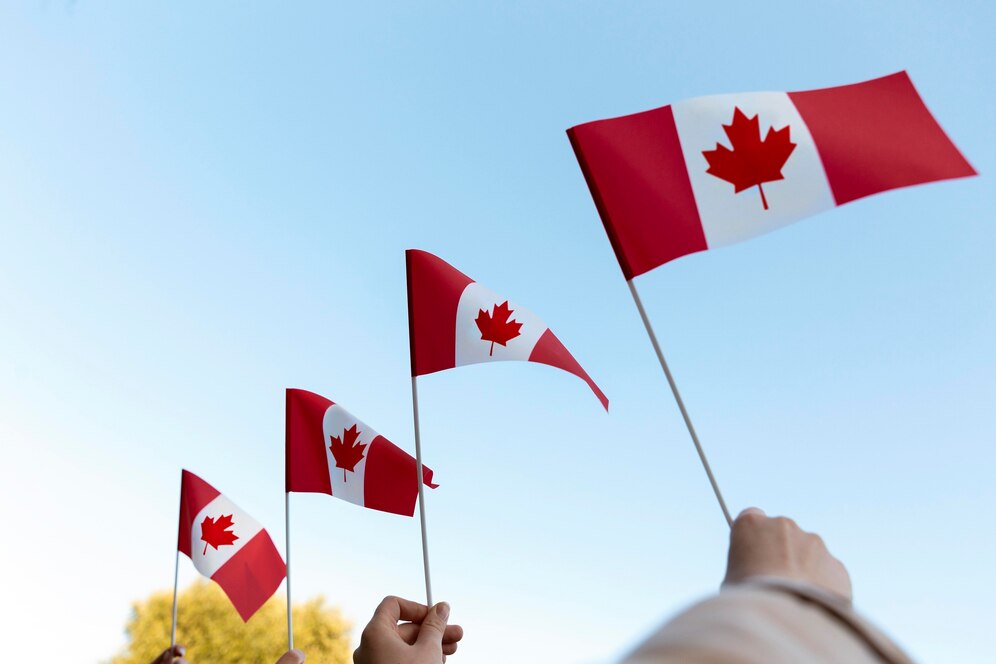Canada has long been one of the top destinations for international students due to its high-quality education system, diverse culture, and opportunities for post-graduation work. However, the Canadian government has recently introduced significant changes to its immigration and work permit policies for international students, particularly with the December 2024 updates. These updates are aimed at enhancing the sustainability and integrity of the International Student Program (ISP) and ensuring that Canada continues to attract genuine students while addressing labor market needs.
If you are an international student planning to study in Canada or already studying there, it’s crucial to stay informed about these changes. This blog post will break down the new immigration rules and explain their impact on your study and work opportunities in Canada.
Key Changes to Canada’s Work Permit Rules for International Students in December 2024
1. Changes to Off-Campus Work Hours for International Students
One of the most notable updates to Canada’s work permit regulations is the change in the number of hours international students can work off-campus during their studies. As of December 2024, international students will be allowed to work up to 24 hours per week while their classes are in session.
This change is part of a broader strategy to ensure that students remain focused on their studies while also gaining practical work experience. However, during academic breaks, such as summer or winter vacations, international students will be able to work full-time without restrictions on the number of hours they can work.
Why This Change? The Canadian government wants to strike a balance between providing international students with work opportunities and ensuring that they prioritize their studies. This update will help students manage their time better while still contributing to Canada’s workforce during breaks
2. New Rules for Changing Learning Institutions
Under the new regulations, international students will need to apply and receive approval for a new study permit before they change learning institutions. This change is designed to prevent students from switching schools without proper documentation or compliance with the terms of their student visa.
Why is This Important? This regulation is part of Canada’s effort to ensure that students adhere to the rules of the International Student Program and that institutions remain accountable for the students they admit. Students planning to transfer between universities or colleges must ensure that their new institution is also a Designated Learning Institution (DLI) approved by the Canadian government
3. Stricter Compliance for Designated Learning Institutions (DLIs)
Canada is introducing stricter compliance measures for Designated Learning Institutions (DLIs) that admit international students. These institutions are now required to provide regular compliance reports to Immigration, Refugees and Citizenship Canada (IRCC), confirming whether their international students remain enrolled in their programs.
Failure to comply with these reporting requirements could result in severe penalties for the institution, including a suspension from admitting new international students for up to one year.
How Does This Affect International Students? This new rule aims to increase transparency and accountability, ensuring that only institutions that comply with Canada’s regulations can continue to attract international students. For students, this change means that they must be cautious about the school they choose, ensuring it is a DLI that adheres to these compliance measures
4. Restrictions on Work Permits for Spouses of International Students
In a significant shift, the Canadian government is tightening rules on work permits for spouses of international students. Under the new regulations, spouses of students enrolled in eligible programs will only be eligible for open work permits if their partners are enrolled in full-time graduate programs or if they are working in certain high-demand sectors.
This change is aimed at ensuring that the work permits issued to spouses align with Canada’s labor market needs, particularly in sectors that are facing labor shortages.
What Does This Mean for International Students’ Families? This means that spouses of students pursuing shorter-term studies or programs that do not fall within the high-demand sectors may no longer be eligible for work permits. If you’re planning to bring your spouse with you to Canada, it’s important to check whether your program meets the new eligibility criteria for spousal work permits
5. Introduction of New Verification Processes for Acceptance Letters
A crucial aspect of the new immigration rules includes the verification of acceptance letters (LOAs). Since December 2023, Canada has been verifying the authenticity of LOAs submitted by students applying for study permits. As of November 2024, almost 529,000 LOAs have been received for verification, and nearly 492,000 LOAs were confirmed as valid by designated learning institutions (DLIs).
Why This Matters: This process is a part of the government’s effort to eliminate fraudulent applications and ensure that international students are attending legitimate institutions. If an LOA is found to be invalid or fraudulent, students may face delays or even be denied their study permits. Students must ensure that they apply only to accredited institutions and provide accurate documentation during their application process
What This Means for International Students:
These changes reflect Canada’s goal of creating a more sustainable and accountable immigration system. By tightening regulations, the government hopes to reduce abuse of the student visa system and ensure that the international students who come to Canada are genuinely interested in studying and contributing to the country’s economy.
For prospective students, it’s essential to stay informed about these changes and to plan accordingly. If you are an international student already in Canada, make sure you’re aware of these new rules to stay compliant with the regulations and avoid any issues with your study or work permits.
How to Prepare for Canada’s New Work Permit Rules
- Understand the New Work Hour Limits: Make sure you’re aware of the new 24-hour-per-week work limit during terms and the full-time work permission during breaks. This helps you plan your finances and time better.
- Check Your Eligibility for Spousal Work Permits: If you’re planning to bring your spouse along, verify whether your study program qualifies for their work permit eligibility.
- Keep Track of DLI Compliance: Ensure your institution is a recognized DLI and that it complies with the new reporting standards. This reduces the risk of complications related to your study permit status.
- Maintain Accurate Documentation: With the new verification process for LOAs, it is crucial that you submit genuine and accurate documents for your study permit application.
- Plan Ahead: If you are considering transferring schools, make sure you have approval for the new institution before making any changes.
Conclusion
Canada’s new immigration and work permit rules for international students, effective from December 2024, represent a significant shift in the country’s approach to managing international education and immigration. These changes aim to improve the integrity of the student visa program, ensure that international students remain focused on their education, and address the country’s labor market needs.
As a prospective or current international student in Canada, it’s vital to stay updated on these changes and comply with all the necessary requirements. By doing so, you can ensure that your experience studying and working in Canada remains smooth and successful.
For more information about Canada’s immigration policies, or if you need assistance with your study permit or work permit application, visit StudentVisaCanada.in. Stay informed, stay prepared, and make the most of your Canadian education journey!
Get Free Expert Advice: Are you ready to embark on your next adventure? Whether you’re seeking a work permit, tourist visa, or study opportunities in Canada or other countries, we’re here to help! Contact us today to learn how our expert services can simplify your journey and turn your dreams into reality. Reach out now and let’s start planning your future together!
- Canada’s Global Passport Ranking: What It Means for Travelers
- Canada Citizenship Requirements: Everything You Need to Know
- Canada vs. Australia: Which Country is Your Perfect Fit for Immigration in 2024?
Disclaimer: The information provided in this blog post is for informational purposes only and should not be considered as legal advice. Always consult with an immigration professional or official government sources for personalized guidance.
Also read:
- Why Canada’s 32% Drop in Study Permits for Indian Students in 2024 Could Affect Your Future Plans
- Canada Launches Rural and Francophone Community Immigration Pilots: A New Era for Skilled Immigrants
- Canada Expands Post-Graduation Work Permit (PGWP) Eligibility: A Gateway to Endless Opportunities for Indian Students
- Canada Takes Action to Combat Fraud in the Express Entry System
- Canada Announces Big Changes to Express Entry Immigration System: What It Means for Indian Aspirants



